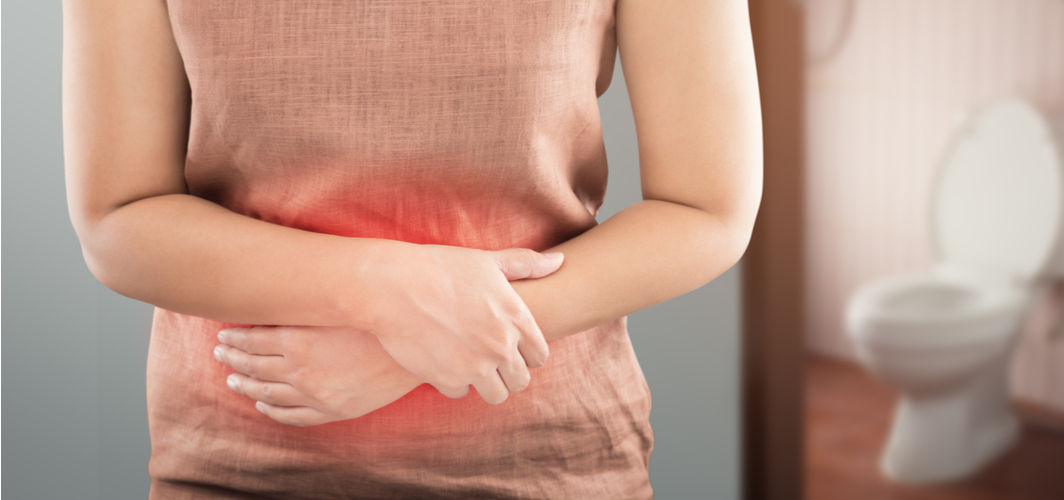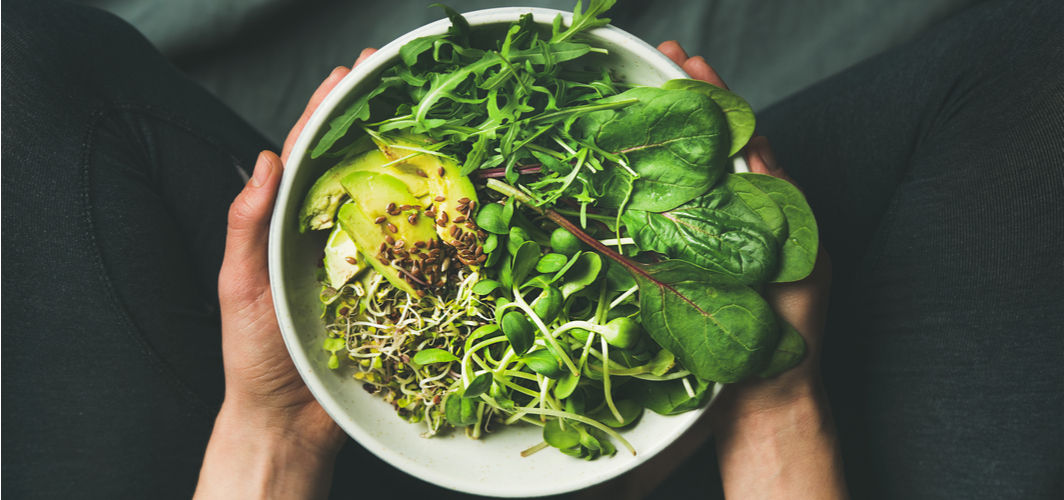Digestive Health
What Is a FODMAP Diet and How Does It Help Manage IBS?
5 min read
By Apollo 24/7, Published on - 25 February 2021, Updated on - 18 October 2022
Share this article
2
18 likes

Irritable bowel syndrome (IBS) is a common gastrointestinal condition that affects the large intestine. The condition is characterized by episodes of intestinal symptoms like abdominal cramps, bloating, etc. Several factors trigger IBS, with diet being one of the most common triggers. Dietary changes play an important role as IBS is a chronic condition that requires long-term management. Avoiding or limiting certain foods can help improve the IBS symptoms in sensitive individuals. A diet, particularly low in fermentable carbohydrates, generally referred to as FODMAPs, is recommended for people dealing with IBS. A low FODMAP diet reduces or eliminates certain foods from the diet that trigger discomfort and abdominal pain associated with IBS.
What are FODMAPs?
FODMAP stands for Fermentable Oligosaccharides, Disaccharides, Monosaccharides And Polyols. These are simple short-chain carbohydrates that are fermentable (easily broken down by microbes) in the digestive system. Examples of these carbohydrates that are predominant in the diet are:
- Oligosaccharides: fructans - chains of fructose sugars and GOS (galacto-oligosaccharides) - chains of galactose sugars
- Disaccharides: lactose sugar
- Monosaccharides: fructose sugar
- Polyols: sugar alcohols such as sorbitol and mannitol
How do FODMAPs affect people with IBS?
The small intestine is a part of the digestive system where the majority of the digestion happens. In the small intestine, the food is broken-down to absorb the nutrients required by the body. But foods with FODMAPs are not easily broken down and move to the large intestine mostly undigested. The large intestine readily absorbs water, but nutrient absorption is minimal. Here the undigested food undergoes a process known as fermentation, where the micro-organisms residing in the large intestine digest and convert it into short-chain fatty acids and a lot of gas.
FODMAPs cause the intestines to swell with fluids, solids, and gas. This is a natural phenomenon that occurs in many people. However, in people with IBS, the fermentation of FODMAP foods cause flare-ups of symptoms such as abdominal pain and bloating. It also causes changes in bowel movement, leading to diarrhoea or constipation. Consuming a low FODMAP diet thereby decreases the symptoms of IBS. The low FODMAP diet was developed by researchers in Australia and is found to be an effective dietary approach to manage IBS.
What a low FODMAP diet means
A low FODMAP dietary plan involves limiting or avoiding certain foods and including some other food substitutes to get sufficient nutrients.
Foods to limit or avoid:
- Foods high in lactose - Lactose intolerance is a common dietary sensitivity in people with IBS. These people have difficulty digesting dairy products because of the low levels of lactase, an enzyme that breaks down dietary lactose. Foods that contain lactose are milk and milk products such as ice cream, cottage cheese, and cream cheese. High levels of lactose can cause IBS symptoms such as abdominal pain and gas.
- Foods high in fructose - Foods that are loaded with fructose sugar include processed foods like soft drinks, sweets that are prepared using high fructose corn syrup, and sweeteners such as honey and agave nectar. Surprisingly, healthy fruits like apples, pears, mangoes, peaches, cherries, and watermelon also contain high fructose. These foods cause symptoms similar to that of lactose intolerance.
- Foods high in Fructans - The human body does not produce enzymes to break down fructans and hence, they move completely undigested to the large intestine. Fructans are short-chain carbohydrates that are fermented quickly in the large intestine causing gas. People with IBS may have symptoms such as severe bloating, abdominal pain, discomfort, and changes in bowel movements. Foods high in fructans include vegetables such as garlic, onions, shallots, broccoli, cauliflower, cabbage, beetroot, and Brussels sprouts. These foods also include grains such as wheat, rye, and foods with added fiber such as inulin.
- Foods high in GOS - Similar to fructans, GOS too cannot be broken down. These foods include kidney beans, chickpeas, lentils, soy products, and vegetables like broccoli.
- Foods high in Polyols - Polyols are found in certain fruits, vegetables, and sugar-free sweeteners. Studies show that even a small amount of polyols can induce symptoms such as bloating, flatulence, abdominal discomfort, and laxative effects in some people with IBS. Polyols are found in fruits such as apples, cherries, blackberries, peaches, pears, apricots, and plums while vegetables include mushrooms and cauliflower. Polyols are also found in sweeteners such as mannitol, sorbitol, xylitol, isomalt, and maltitol that are found in mints, cough syrups, sugar-free chewing gums, and candies.
Foods to include:
- Dairy products such as lactose-free milk, rice milk, almond milk, soy milk, coconut milk, lactose-free yogurt, and hard cheeses.
- Fruits with lower levels of fructose such as bananas, blueberries, grapes, kiwi, lime, lemon, cantaloupe, oranges, and strawberries.
- Vegetables like spring onions, bean sprouts, carrots, cucumbers, eggplant, ginger, lettuce, olives, potatoes, and turnips.
- Protein such as chicken, fish, eggs, and tofu.
- Nuts/seeds like almonds, peanuts, and walnuts.
- Grains including oats, oat bran, rice, rice bran, corn, and quinoa.
Overview of following the FODMAP diet
A low FODMAP diet involves three phases:
- Elimination - Stop eating high FODMAP foods.
- Reintroduction - Once the symptoms are improved, reintroduce the FODMAP foods one at a time to find which ones are problematic.
- Integration - Return to the normal diet, avoiding or limiting only those FODMAP foods that cause the IBS symptoms.
Conclusion
Certain foods such as the ones with FODMAPs are known to stimulate intestinal reactions in everyone. But, in people with IBS, eating too much of these foods can worsen the intestinal symptoms. A low FODMAP diet has positive effects on the digestive system and has shown to improve IBS symptoms in many people. While the diet is helpful, it involves limiting a wide variety of foods and can lead to decreased nutrient intake. Hence, one must consider consuming suitable substitutes to meet nutritional needs. If the dietary factors seem to trigger IBS symptoms, it is advisable to consult a dietician before going on a low FODMAP diet.
Digestive Health
Leave Comment
Recommended for you

Digestive Health
What Is the Gut-brain Connection?
The gut-brain connection refers to the physical and biochemical systems that link the gut and the brain together.

Digestive Health
Proven Tips To Stay Safe From Diarrhoea During Monsoon
Heavy rains during the monsoon facilitate the growth of pathogens in the environment that flush into sources of drinking water, increasing the risk of diseases such as diarrhoea.

Digestive Health
Diverticulosis & Diverticulitis: Disorders Affecting the Large Intestine
When the diverticula do not cause any symptoms, the condition is called diverticulosis and when symptoms do occur with severe abdominal pain, it is called diverticulitis.
Subscribe
Sign up for our free Health Library Daily Newsletter
Get doctor-approved health tips, news, and more.
Visual Stories

Hidden Health Benefits in a Bowl of Salad
Tap to continue exploring
Recommended for you

Digestive Health
What Is the Gut-brain Connection?
The gut-brain connection refers to the physical and biochemical systems that link the gut and the brain together.

Digestive Health
Proven Tips To Stay Safe From Diarrhoea During Monsoon
Heavy rains during the monsoon facilitate the growth of pathogens in the environment that flush into sources of drinking water, increasing the risk of diseases such as diarrhoea.

Digestive Health
Diverticulosis & Diverticulitis: Disorders Affecting the Large Intestine
When the diverticula do not cause any symptoms, the condition is called diverticulosis and when symptoms do occur with severe abdominal pain, it is called diverticulitis.